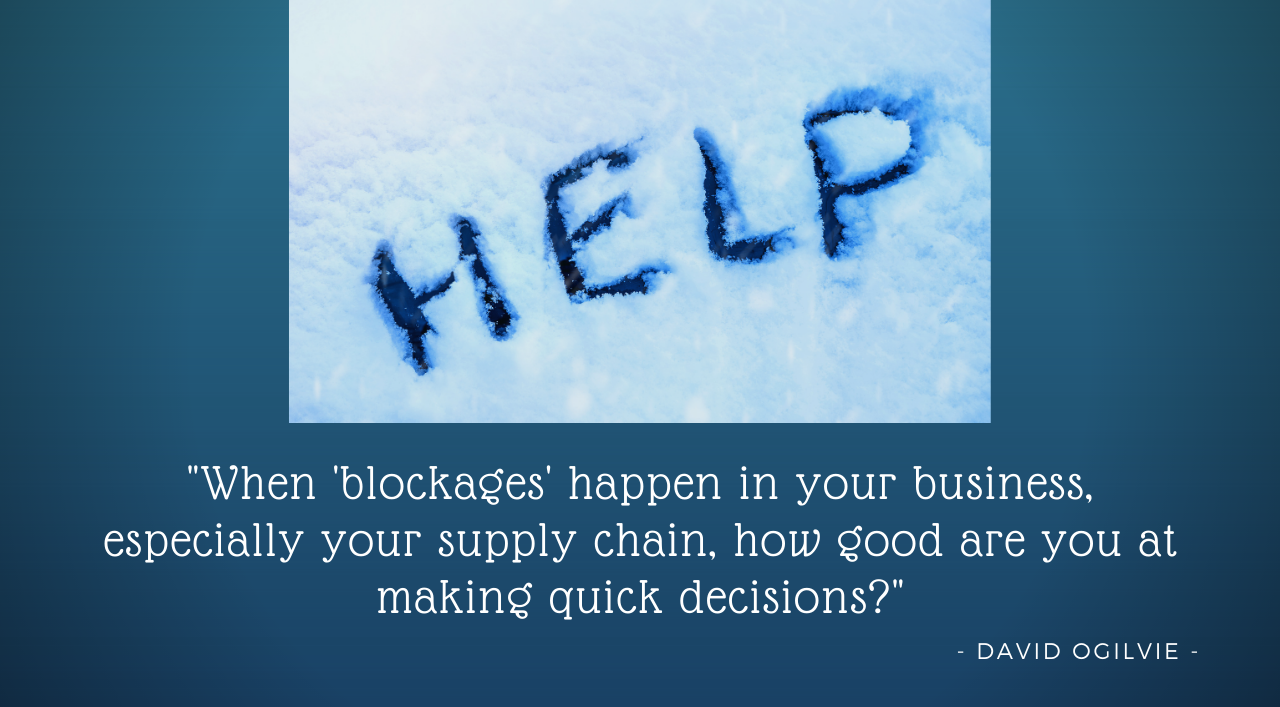
Supply Chain and the Suez Canal
The issue of the “Ever Given” blocking the Suez Canal has received significant press coverage recently. I’d like to canvass some points around this topic and would encourage you to let me know what you think.

This event is having a massive impact on the flow of vessels through the canal and it is predicted to be costing the world economy something in the order of $9.6 billion a day.
The enormity of the volume of traffic affected can be seen in the image below.

What is interesting is the speed at which the ship’s owners, or perhaps the ship’s captains, made decisions. This image was taken only two days later. It quickly became clear to the industry this was not going to be a quick fix and they adjusted accordingly in spite of the additional cost of retracing their path and then heading around “The Horn”.

Are you able to make costly and timely decisions like this so quickly?
The impacts of this event will be significant. The different supply chains were already suffering from other events, such as:
- Container shortages. As anyone who operates internationally knows there has been a significant container shortage of late. The cost of containers has skyrocketed due to the shortage, and the delays in your shipments while trying to secure containers has not been insignificant.
- Capacity constraints. Once you have secured a container at whatever cost, being able to find a shipping slot to transport it has added to your difficulties, not to mention the increase in the cost to ship. It seems the ship owners, like OPEC have in the past with oil, deliberately manipulated the situation with COVID to their best advantage by constraining capacity. Not every ship in the various fleets are on the ocean. This situation will mean those ships on the water will be taking longer to complete their voyages – meaning the ship owners will either have to release some capacity to help trade move, or prices will go significantly higher. It also means procurement policies will have to change somewhat, possibly meaning additional capital will be required to fund the additional inventories that will be used to buffer the company from further disruption.
- Port blockages. Los Angeles was already blocked and some Australian ports have been suffering from a union sanctioned go slow, thereby further restricting the flow of goods through the ports. The additional time that it is now going to take those consignments on the water to go via The Horn will potentially allow the ports to clear their own current backlog.
This event should remind every executive of the types of topics that should be considered in their risk management approaches, especially their supply chain strategy. This is something my team and I are helping more and more companies with of late.
If you’re an executive or owner of a mid-sized or large company and want to discuss ideas on how you can use systems and technology to dramatically improve efficiency, decrease costs, and increase profits and enhance scalability, give me a call.
business impact, decision making, risk management, shortages, supply chain